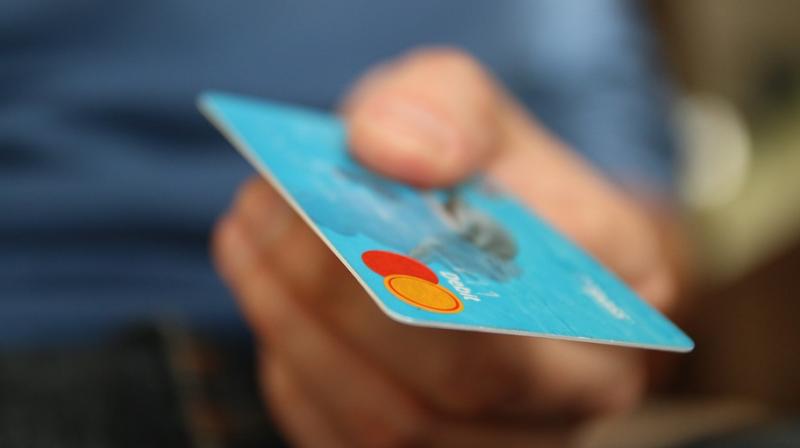Are you aware of these credit card charges?
Various charges and fees associated with credit cards are often ignored and in most cases unknown to consumers.

Credit cards offer you the privilege of purchasing now and paying for it later. You also get an interest free period basis your card and billing cycle. It also bails you out of financial emergencies when you are short of funds. There involve other advantages like discount offers, reward points, cashback privileges etcetera on credit cards. However, all of these facilities often come at a cost. The various charges and fees associated with credit cards are often ignored and in most cases unknown to the consumers.
Here are the various charges that you need to be aware of if you have a credit card:
Joining Fees, Annual fees & Renewal fees:
Joining fees is the charge that you pay when your credit card application is granted. The joining fee for every bank is different as it depends upon the card type you have applied for. Generally, the joining fees range between nil and Rs.1 lakh. However, many of the banks have waived off their joining fees and have started off with the concept of free lifetime cards.
An annual fee is paid once while renewal fee is paid every year. For every credit card holder, the annual fee is charged basis the card variant. The applicable fee is directly charged to the cardholder’s account and the same is billed in the statement of the card based on the month it is charged. Many of the banks to attract more customers have discontinued charging annual fees or have made it free for a certain time span. Zero or lifetime free annual fees is the name given to this feature which is offered on a few credit cards. The offer allows the customer to lessen the all-inclusive cost of owning credit cards. The annual and renewal fees range between nil and Rs.30, 000.
Finance charges:
All the credit cards offer you the benefit of an interest-free period depending on the purchase date and billing cycle. This period extends up to 55 days. The banks expect the credit cardholders to pay full bill on or before the due date failing which the bank charges an interest at a contracted rate. This interest rate ranges between 23 per cent and 47 per cent pa. If you fail to pay the credit card bill in full on time or pay the minimum amount due, you lose the advantage of interest-free period. This continues until you pay the entire outstanding bill on credit card.
Cash withdrawal fees/Cash Advance fees:
Cash advance fee is charged when you withdraw cash using a credit card from a particular ATM in India or overseas. Cash advance fees range between 2 per cent and 3.5 per cent on the amount withdrawn or Rs.500 whichever is higher. Cash advance fee is calculated from the date you withdraw the cash until the date you make the final payment. This facility is handy, but very costly because you incur additional expenses as finance charges are also charged along with cash advance fees. Therefore, it is better to use this facility as a last resort.
Overdue penalty or late payment fee:
The cardholder must pay at least a sum which is equivalent to the minimum amount due on or before the due date as mentioned in the bill. If you fail to do so, then the bank levies an overdue penalty or late payment fee. The quantum of the overdue penalty depends on the outstanding balance on the credit card.
Higher the amount due on the credit card, higher is the late payment fees. It can go up to Rs.950 under specific circumstances. However, you can avoid the payment by paying the minimum amount on credit card on or before the due date.
Over limit penalty:
When you exceed the allotted credit limit, few of the credit card issuers do not turn down the transaction instead they charge an over-limit penalty. This is a flat fee which is visible on your credit card statement. A show up of over limit on your credit report can affect your credit score. The over limit penalty ranges between 2.5 per cent and 3 per cent subject to minimum withdrawal of Rs.500.
Surcharge:
A surcharge is an additional fee, charge or tax that is added to the cost of goods or services. Up to 2.5 per cent of the transaction is charged on railway expenses while a minimum of Rs.10 or 1 per cent of the transaction whichever is higher is charged on petrol or fuel cost. The surcharge for fuel transaction is waived off or refunded if the transaction is between Rs.400 and Rs.5000.
Foreign currency transaction or Mark-up Charge.
If the credit card is swiped within India no fee is charged. But if it is swiped abroad or charged on foreign currency, a conversion charge is applied. For an international transaction, the bank charges up to 3.5 per cent of the transaction value.
Other charges:
Above we have discussed few standard charges in credit card account. There are specific other charges like cash deposit fee, cheque bouncing fee, payment dishonour fee, emergency card replacement fee and so on. You must be aware of such charges.
Sahil Arora – Head, Payment Products, Paisabazaar.com

